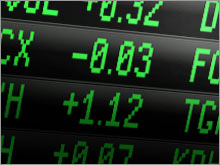IPOs are so passé, private markets are hotNew markets give companies access to capital without the hassle of going public - and business is booming.NEW YORK (CNNMoney.com) -- For years companies that wanted to raise capital routinely turned to public markets like the New York Stock Exchange and Nasdaq, to private equity firms or to venture capital firms. Now another alternative is emerging.  Private markets, which permit the sale of unregistered securities to big institutional investors, offer companies the chance to raise money through so-called private placements without going through the cost or hassle of the traditional going public route. The business is growing swiftly, with some $1.2 trillion in private securities changing hands last year, according to Thomson Financial, up sharply over the last decade or so. The challenge to public markets has not gone unnoticed. Nasdaq (down $0.06 to $31.90, Charts), for one, is not taking any chances. The 36-year-old exchange is awaiting SEC approval this summer to expand its system for allowing Nasdaq members and institutional buyers to trade in private equity and debt securities. Wall Street isn't sitting back either. Investment bank Goldman Sachs (down $7.89 to $225.75, Charts, Fortune 500) last month launched something it calls Tradable Unregistered Equity, or GSTrue, which it used to underwrite the sale of 15 percent of Oaktree Capital Management, raising $880 million for the Los Angeles-based investment firm, which specializes in alternative investments in inefficient markets. "Oaktree showed there was enough demand from accredited institutional investors to give the benefits of not being subject to public regulation but with the pricing efficiency of going public in the U.S. market," said merger and acquisition veteran Roger Ehrenberg of the market-blog Information Arbitrage. "People were surprised." Private markets are made possible under SEC Rule 144A, put in place in the 1990s to allow large institutional investors with assets of at least $100 million to trade unregistered shares among themselves without a waiting period. The SEC requires any company with more than 500 investors to register as public. In order to enjoy the benefits of private stock sales the pool of investors for any one stock would have to be small. The recent boom in company buyouts has helped spur demand for private stock sales, said David Brophy, professor of finance at the University of Michigan. Mergers and acquisitions often involve restricted shares. Restricted shares are also commonly used in executive compensation, he said. Years ago selling restricted shares was expensive. "You could sell it but take a haircut," Brophy said. Over time smaller operations such as specialized trading desks sprang up to deal with restricted securities. "Now there are portals," he said, such as those offered by Goldman and soon Nasdaq. Private stock or debt sales typically got gone through contacts at banks, brokerages, or person to person. "Now there are more and more private placements done from public equity companies to public or private ones," Brophy said. "Private placement is becoming formalized." Brophy compares the development of markets for private placements today with the rise of options exchanges in the 1960s. Back then, options sales were touted in small advertisements in the Wall Street Journal, he said. "It was several cuts above the pawn shop business." But the options business went mainstream. "And how big is the option market today?" he asked. "Gigantic." The total dollar value of 144A private placements was only $75 billion in 1995, according to Thomson Financial, with much of the growth fueled by investors at private equity firms and hedge funds looking for new places to put money to work. "I bet it will be gigantic in less than five years," Brophy predicted of the new platforms for private trades. "Everyone is looking for good, efficient ways to raise money." Ehrenberg has said other investment banks are "certainly curious" about developing their own private markets and he predicted that more will come. Over time Ehrenberg sees them fusing into one accredited exchange. "The impact of the private markets could be very extensive," said Ehrenberg. "They pose a challenge to public markets for the best issuers." |
|
